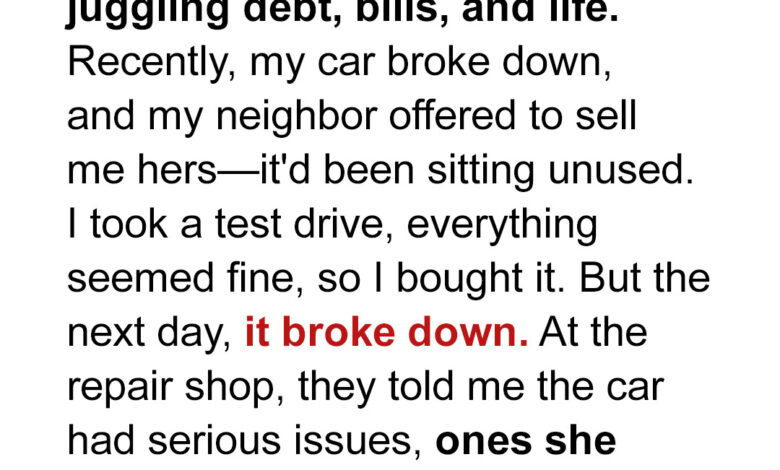
T
hree years after her husband’s tragic death, single mom April struggled to support her kids, Dora and Ethan, working two jobs. When her minivan broke down, her neighbor Cheryl offered a Toyota for $2,500, claiming it was barely used. Desperate, April used her emergency fund to buy it, but the car failed within a day. A mechanic confirmed the engine was long-damaged, revealing Cheryl’s scam. Confronted, Cheryl dismissed April’s pleas for a refund.
Devastated, April cleaned out the car and found a bag under the seat containing $7,000 and receipts with Cheryl’s name. Realizing it was Cheryl’s forgotten cash, April kept it. Cheryl soon demanded the money back, admitting it belonged to “serious people,” but April, recalling Cheryl’s callousness, refused, quoting her: “No warranties, no returns.”
Cheryl vanished shortly after, her house left empty. April sold the Toyota for parts, bought a reliable Honda, and rebuilt her emergency fund. Driving her kids to school, she smiled, feeling justice served. Karma, she realized, had balanced the scales with poetic irony.




